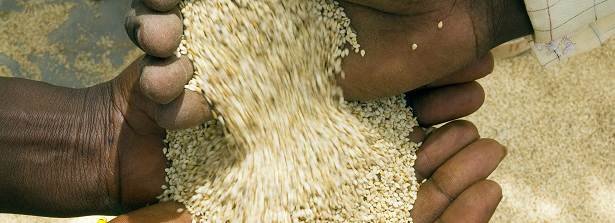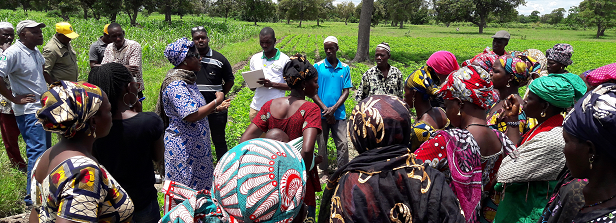Economically viable foundation seed model for Mali

Duration: 01 August 2017 to 01 July 2020
Project information
Aim: The benefits of sowing quality seed is tremendous. Low seeding rates help farmers save time, money and labor. Fast uniform emergence, more vigorous seedlings, high uniformity in the field, high return per unit area, high quality of the harvest, and high market value are valuable to smallholder farmers. In spite of this, the Malian seed industry still fails to supply farmers, certified seed in sufficient quantities, mainly due to insufficient quantity of foundation seed. Therefore, this project “Developing economically viable models of foundation seed production for vital food security in Mali” aims to ensure the availability of quality seed in sufficient quantity by availing on a regular basis, stocks of foundation seed of suitable varieties in adequate quantities.
Objectives: The overall objective is to develop novel Early Generation Seed Models (EGSM) especially foundation seed production models inclusive of female and male smallholder farmers with emphasis on marginalized but vital crops in Mali. The specific objectives are to:
- Assess feasibility of foundation seed production by smallholder farmers;
- Assess efficiency of the production of foundation seed by smallholder farmers as compared with breeders and seed companies;
- Promote uptake of novel approaches to sustainably supply foundation seed of neglected crops;
- Strengthen capacity of smallholder farmers men and women in foundation seed production.
Method: In this project three models of foundation seed production will be tested for efficacy, effectiveness, sustainability, profitability and seed quality. The project will be participatory to facilitate uptake and guarantee development of Mali’s seed industry and sustainably increase crop production and productivity.
Country: Mali.
Dutch policy goals: Promoting inclusive and sustainable growth in the agricultural sector.
Progress reports
Year 1: This project seeks ways to sustainably avail stocks of foundation seed (FS) of suitable varieties in adequate quantities. Since January 2018, the consortium used different investigation methods that identified existing foundation seed models as follows: 1. Research institutions centered models where FS is produced on-station or on-farm (through contract growers supervised by the researchers); 2. Seed companies centered models where FS is produced under the supervision of the research institutions (since most seed companies lack technical expertise). The seed may be produced on the company’s own land or through contract growers. Both models require smallholder farmers as contract growers. The public sector intervenes in both models through seed control and certification agents on one hand and the researchers on the other hand. Hence the foundation seed production is dominated by the public sector. This is due not only to current national policies but also weakness of the private sector.

